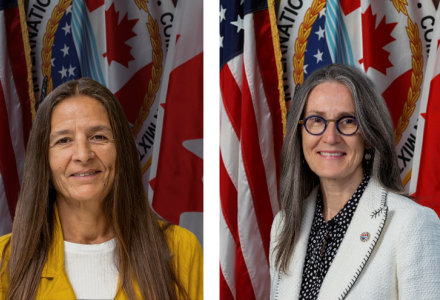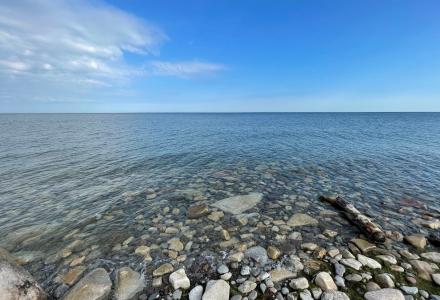
Fish harvest and consumption are an essential part of Great Lakes Indigenous cultures. Many in Canada and the United States don’t realize that, for Native Americans, fish consumption is a legal right established by treaties that are more than 180 years old. The Chippewa Ottawa Resource Authority (CORA) serves as an inter-tribal management body for the 1836 treaty area in upper Michigan.
The Laurentian Great Lakes basin is the traditional territory of Indigenous nations, including the Anishinaabeg: the Three Fires Confederacy of Ojibwe, Odawa and Potawatomi peoples. The traditions affirmed by the treaties are a foundational institution of tribal socio-political existence. Hunting game, harvesting fish and gathering ceremonial ingredients for medicines or crafts are legally sanctioned activities that connect modern tribal members to their past.
These activities also connect Indigenous health to the Great Lakes basin. It’s important to realize that, culturally speaking, Indigenous people value their connectedness to the land. Many tribal members view the environment’s fate as intimately tied to their own. Anishinaabe cultural activities require broad, intact ecosystems. Thus, environmental stewardship is integral to tribal identity.

Researchers at the Medical College of Wisconsin partnered with CORA to investigate how cultural fish consumption patterns may affect Indigenous health. It is well-documented that consumption of Great Lakes fish imparts health risks and benefits. For the study, nutritional values of fish were compared against environmental pollutants (mercury and organochlorines) that accumulate in fish.
CORA has monitored these contaminants since 1991 in lake trout and lake whitefish from the 1836 treaty-ceded waters of lakes Superior, Huron and Michigan. The National Institute for Environmental Health Sciences has funded a US$1.2 million grant for researchers to gather data on additional fish from the area as well as nutritional information on essential Omega-3 and Omega-6 fatty acids. The work identified some crucial facts about Great Lakes fish consumption.
There are contaminants of concern that persist in Great Lakes fish, but those levels are not always so high that they are unsafe to eat. Especially when compared to store bought farm-raised fish, Great Lakes fish have healthy ratios of Omega-3 to Omega-6 fatty acids. Finally, the Omega-3 fatty acids in many of these fish impart benefits that may overshadow the risks from the contaminants, depending on the fish.
These findings, published in the Journal of Great Lakes Research, are important because Great Lakes fish mean more to those who live in the basin than just food. In the study, tribal members from the CORA service area were asked how many fish and what types of fish they would typically eat in a month.
The members were then shown a mobile app that presented the study’s nutrition and contaminant findings about each fish species. After viewing this information in the app, participants were asked again what fish they would like to eat. In most cases, those surveyed selected fish options that would benefit their health. They also selected more fish from the Great Lakes when armed with the data that a tribal scientist from CORA had collected.
The research demonstrates the value of providing people with environmental data collected with cultural history and health in mind.
CORA represents the interests of the 1836 treaty signatories. Using 21st century technology in partnership with grants from the National Institute for Environmental Health Sciences, CORA can promote safe and healthy fish consumption for its members as intended by the original treaties. The team plans to release the app to the public on the CORA and Inter-Tribal Council of Michigan websites later this year.
Dellinger co-authored the study written about in this article with Ronald Anguzu, Noel Pingatore and CORA Environmental Coordinator Michael Ripley.

Matt Dellinger is an associate professor at the Medical College of Wisconsin and member of the IJC Health Professionals Advisory Board.




